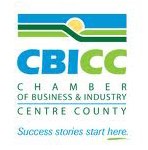Recent studies have shown that the traditional retirement strategies of pulling a percentage off a brokerage account may be flawed. According to one study, stock and bond only strategies preserved the original value in just 45% of the cases, while “Income for Life” strategies preserved the original value in 93% of the cases. Paul Nichols, the president of Financial Abundance a registered investment advisor and estate planning firm in State College, compares traditional retirement strategies to the “Income for Life” strategy.
Q: Why is it difficult for people to make the transition from work to retirement with regards to their income needs?
A: So much of the industry focuses on accumulation and a “one size fits all” approach to income planning. While accumulation is certainly important and necessary for retirement planning, the distribution phase is the reason we save for their entire lives. Few pre-retirees are aware they need to shift from an accumulation mode that is focused only on growth to a distribution mode designed to provide income in the most efficient way possible for retirement. I have found that some proactive planning and education can go a long way to easing this transition and will help create peace of mind.
Q: Why should someone use an Income for Life model over traditional strategies?
A: Because the biggest risk in retirement is running out of money. We have found most retirees prefer a guaranteed predictable income stream that is not subject to market losses. By the way, when it comes to the market, everybody loves volatility when the market is up, but when the market is down, sleepless nights ensue.
Q: How much income can I retire on and NOT run out of money?
A: That is a question I get on a regular basis. The answer depends on your situation, nest egg and your income needs. The traditional strategy recommends a 4% withdrawal rate. An IFL plan usually results in a withdrawal rate of 5-7% and includes inflation increases, but eliminates the associated risk, trading and management fees.
Q: Does that mean that people should not keep their money invested in the market?
A: Quite the opposite. As a proponent of the market due to potential market returns, it is important to have some money in the market. Because it does have inherent risks, the only money we suggest retirees keep in the market is the money they don’t need to provide their guaranteed income stream. More and more studies suggest that creating a guaranteed predictable income stream without market risk, allows many retirees to have the peace of mind that is conducive to an enjoyable retirement especially with the longer life spans we experience in America.




 Clarity Coaching Tips
Clarity Coaching Tips Common Sense Videos
Common Sense Videos It’s Your Money
It’s Your Money
